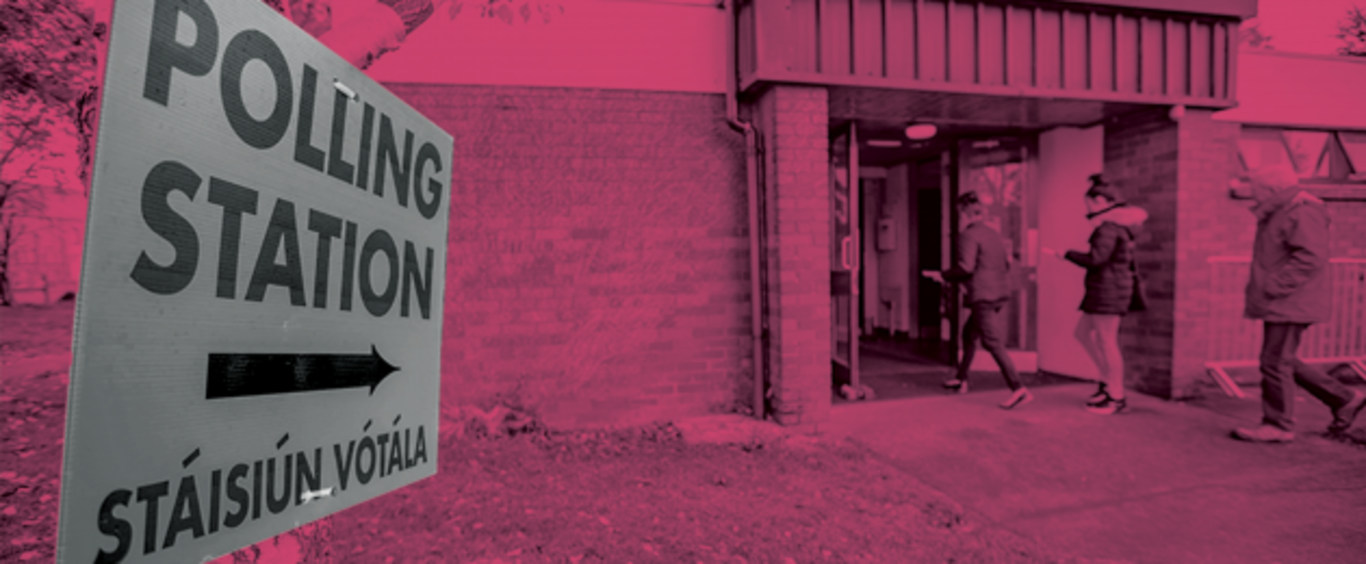Ireland's voter turnout in every election is well below average compared to rest of EU
Half of the Irish public didn’t vote in the European or local elections in 2019, despite polling suggesting over 80% of the public will vote in June.

NEW DATA HAS found that Ireland’s voter turnout in all elections is well below the average for EU member states.
An investigation into the voter abstention rates across the EU has found Irish voters are less likely to vote in local, European and even general elections.
The results of the investigation comes after polling by The Journal/Ireland Thinks found that 83% of Irish voters said they are “very likely” to vote in the upcoming European elections.
However, data collected by journalists in the European Data Journalism Network (EDJNet) reflects that Ireland’s absent voter rates are much higher compared to many member states in the European Union.
Over half (50.3%) of the Irish electorate did not vote in the last European elections in June 2019 while the average total percentage of voters who did not turn up within the EU27 was 47.5%.
Noteworthy, the crowdfunded community-led investigative platform from The Journal, supports independent and impactful public interest journalism.
High rates of non-voters in EU elections
Data collected by Portuguese digital magazine DIVERGENTE and EDJNet, of which The Journal’s crowdfunded investigative platform Noteworthy is a member, showed that the turnout of European elections is much worse compared to elections for local or national government.
The investigative team analysed the demographics and socioeconomic profiles of non-voters across the 27 EU member states.
As part of the group’s conclusions, it was found that in most EU countries, over half the electorate did not vote for Members of the European Parliament (MEPs) in the 2019 elections. The group noted that The Netherlands was the only founding member state to have more than half of voters not turn up.
Slovakia had the worst turnout of all member states, with an absent voter rate of 77% while Belgium performed best with the lowest absentee rate of just 11%. It was noted, however, that Belgium has compulsory voting laws.
Mixed results for compulsory voting
Among the states in the EU with compulsory voting in the European elections, the investigation found just two of them had non-voter rates of under 20% – Belgium and Luxembourg.
The three remaining states – Greece, Cyprus and Bulgaria – all had high absent voter rates of 41.3%, 55% and 66.7%, respectively.
Even in general elections, Ireland had higher rates of absent voters compared to the EU average, ranking at 37.3%, over five percentage points higher than the EU.
The group determined that the voter turnout in general elections across Europe is higher in countries where a greater proportion of the population work in the services sector.
It was also found that the higher the average salary in a country, the lower the rate of abstention is. Although, Ireland had ranked high with an average salary of €2,000/month, it still was among the countries with a high number of non-voters.
Among local elections, researchers found half of the Irish public (49.9%) didn’t vote for councillors in 2019, also higher than the EU’s rate of absentee voters.
—

Reporter: Muiris O’Cearbhaill for Noteworthy / The Journal
The non-voter time bomb is a data-driven feature coordinated by DIVERGENTE, with methodological support and editing from DINÂMIA’CET-Iscte researchers.
It is being undertaken with the European Data Journalism Network and with collaboration of: Are We Europe (Belgium), Átlátszó (Hungary), Delfi Meedia (Estonia), Denník N (Slovakia), Deutsche Welle (Germany), El Confidencial (Spain), EUrologus (Hungary), II Sole 24 Ore (Italy), iMEdD (Greece), NARA (Lithuania), Osservatorio Balcani e Caucaso Transeuropa (Croatia), Pod črto (Slovenia), PressOne (Romania), Rue89 Strasbourg (France) and Voxeurop (Belgium). Supported by Journalismfund Europe.

—
This article is co-funded by Journal Media and a grant programme from the European Parliament. Any opinions or conclusions expressed in this work are the author’s own. The European Parliament has no involvement in nor responsibility for the editorial content published by the project. For more information, see here.






